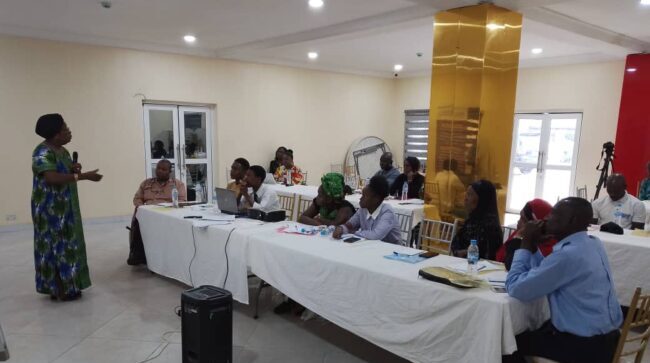A Professor of Sociology, Criminology, and Gender Studies at the Department of Sociology, Ambrose Alli University, Ekpoma, Edo State, Prof. Agatha Eguaveon, asserted on Thursday that women, girls, and children are the primary victims of sexual and gender-based violence globally.
Prof. Eguaveon made this assertion while speaking at a 2-day training on “Gender and Sexual-Based Violence, Legal Framework, and Community Engagement,” organised by the Women’s Rights and Health Project (WRAHP), with support from Rule of Law and Anti-Corruption (RoLAC), in Benin.
The varsity don, who spoke on the Violence Against Persons Prohibition (VAPP) Act, said that the vulnerability of these three categories (women, children, and girls) has led to high levels of gender-based violence in society.
“In my lecture, I examined the various forms in which sexual and gender-based violence are perpetuated in our society. Now, it affects both male and female children due to their vulnerability as women.
“The incidence is still much higher among women and girls. It includes child abuse, rape, and sexual abuse such as incest. Fathers now violate their female children, and they are not allowed to speak out. It includes relational incest and all forms of sexual deviations that are prevalent in our society.
“The incidence remains very high among female children. We see it as one of the most serious consequences of cultural practices. It moves from generation to generation. It is exposure and education that help us realise that it shouldn’t be this way,” she added.
In her address, the Executive Director of Women’s Rights and Health Project (WRAHP), Mrs. Bose Ironsi, said that the event was organised to train representatives drawn from three local government areas in Edo to enable them to train others.
She maintained that through community involvement, the message of SGBV would reach grassroots levels.
“With the alarming data on sexual and gender-based violence in various communities and all strata of life, you will realise that there is a need to engage more people to make it everybody’s business if we are to address the issue.
“Over the years, we have tried to engage community members to amplify their voices. Not only to amplify their voices but also to enable them to respond. If something is happening in the community, and the community can say something is happening here, it will give people the opportunity to get justice. They would be able to respond to the issue. So that is why this training is here to engage various structures in the community.
“We have the market women’s associations, religious groups, youth, Muslim leaders, and others because these are the people very close to the grassroots.
“We also talked about issues of legal representation because if people know the law, they will be able to demand their rights when they see that something is going against their wishes.
“But when they aren’t aware, they will be oppressed. When they are aware, they can demand justice and hold those supposed to maintain law and order accountable,” Ironsi stated.
In her remarks, the Edo State Project Coordinator of RoLAC, Mrs. Uche Nwokedi, urged the participants to speak out whenever they experience any issues of sexual and gender-based violence.
She maintained that SGBV affects everybody as no religion supports gender-based violence, suggesting that only constant sensitisation will help reduce the menace in society.
Reacting on behalf of other beneficiaries, Mrs. Alhasan Hawa and Mrs. Aziku Theresa commended the organisers of the training program for educating them about SGBV.
They promised to take the message to their respective communities so that those at the grassroots could be informed.
“This is something that has been happening in various communities. We don’t see it as anything, but we don’t know how to voice it out. Now, as they teach us, we now know how to say it out to various authorities,” Hawa posited.
READ MORE FROM: NIGERIAN TRIBUNE
